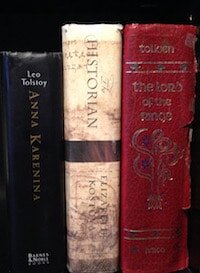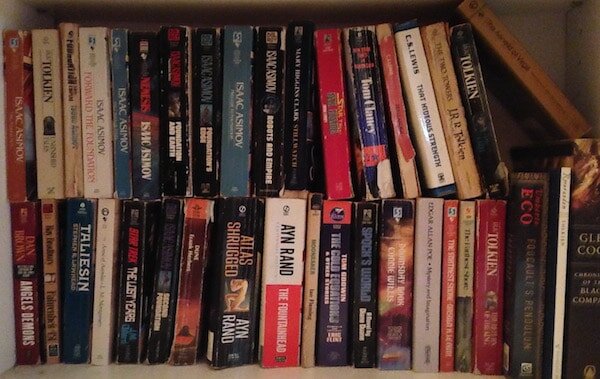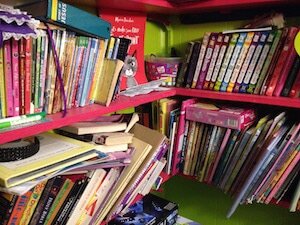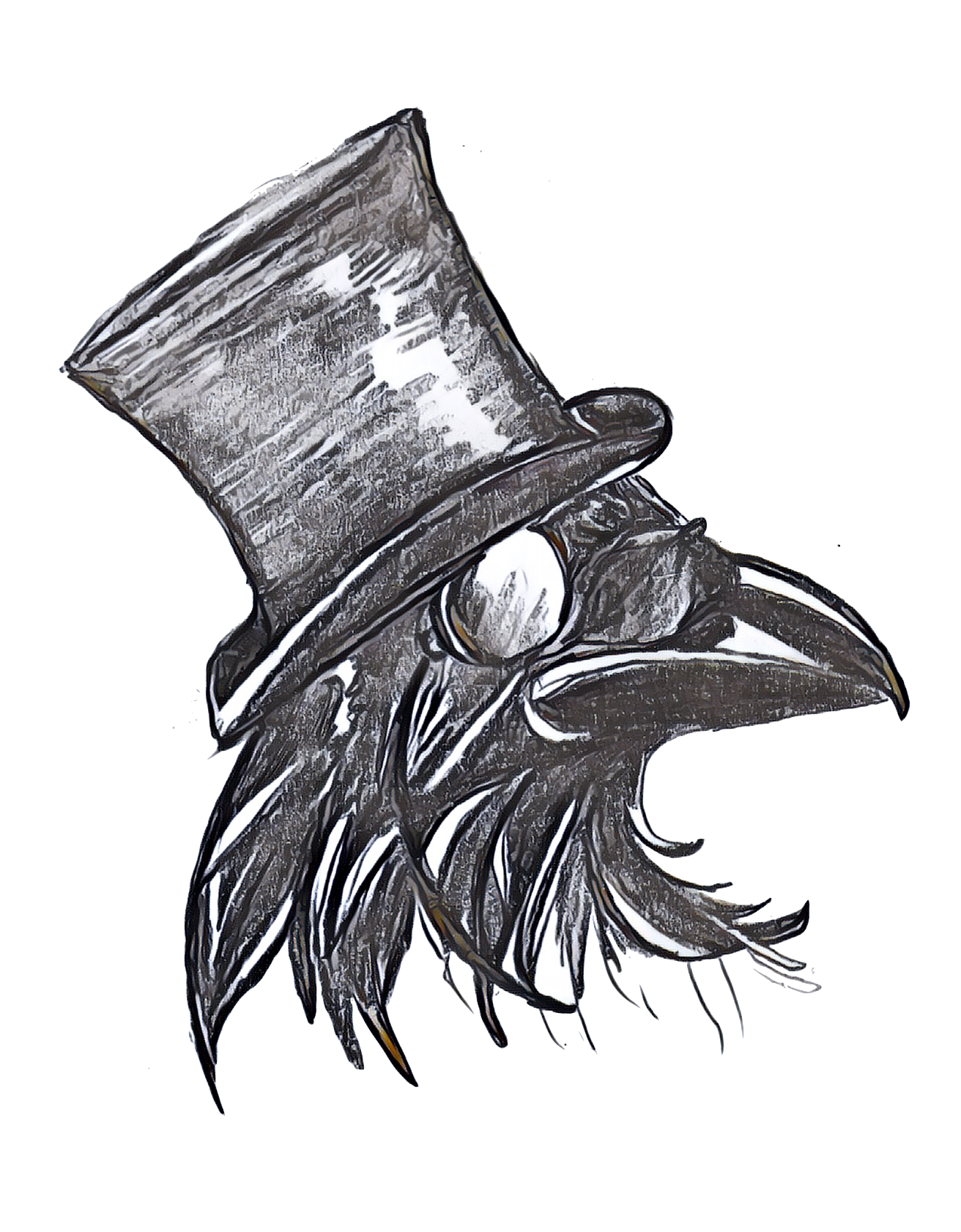Modern Fantasy Fiction and Teens, Part 2
In Part 1, I revealed my thinking about teens and Christians in general reading fantasy fiction. In this post, I'll lay out some recommendations, as well as the reasons I'm recommending them. In some ways, my list makes me feel a bit of a curmudgeon, because they are the fantasy fiction released in previous generations. Isn't that just like an old guy? Those darn kids and their crazy music. Give me Pink Floyd any day.Wait. What is this post about?Oh right. Reading.
Why is Older Better?
In the broadest terms, there's a reason the fiction of previous generations is generally "better", or at least "spiritually safer" to read than the occult-centered crap on shelves todays. In the last decade or so, fantasy fiction has taken a dark, dark turn.Fantasy fiction in previous decades was heavily influenced by JRR Tolkien, who single-handedly and unintentionally invented the whole genre.Many authors either mimicked Tolkien in their stories and writing style, or developed stories and writing in reaction to Tolkien. Whether in honor of or in reaction to, these authors were undeniably influenced by Tolkien, and Tolkien wrote from an inherently Medieval European worldview. In fact, some Medieval Studies programs in modern universities require Tolkien to be studied, just so the students can enter the worldview and thinking of Medieval Europeans.And the worldview of medieval Europe was a supernatural Christian one, far different from the Western materialist worldview of our day, or the pagan supernatural worldview of other cultures.Predictably, as the fantasy genre evolved, it moved away from the medieval Christian worldview and into a postmodern and pagan supernatural worldviews. Thus the writings from this perspective are inherently tainted.(And if that isn't a brilliant example of why modern writings suck, while the writings of previous generations are better, than I don't know what is!)So anyway, some recommendations for teens and adults who like reading, but want to avoid the modern fantasy teen fiction that pollute modern booksellers.
Tolkien and Lewis
Let's just get Tolkien and C.S. Lewis out of the way. Yes, they are two of the most influential writers in the last 500 years, and that's saying a lot. Plus they were friends, which is just... neat.The Hobbit and The Lord of the Rings. These novels tell a different story than the movies tell, so don't rely on the movies to understand what Tolkien wrote. Rooted in a Christian medieval worldview, these are basically a "fairy story" set in a "sub-creation." I recommend Tolkien's essay on these topics, called "On Fairy Stories." The Lord of the Rings is the most widely read fictional work in the world during the 20th Century. Tolkien studies is becoming more accepted in universities. The Lord of the Rings is firmly rooted in a world that accepted the spirit realm interacted with the physical realm. Some characters (particularly the immortal elves and wizards) could see the spirits of other characters. When Frodo donned the ring, he could see in the spirit realm. The Ringwraiths could only see in the spirit realm, and couldn't see the physical world. Multiple characters experience the spiritual gifts of prophecy and wisdom, they receive words of knowledge and even speak in a language ("speaking in tongues") they don't know when under spiritual and physical assault. Truly, this work is one every spiritually-sensitive person can enjoy.The Silmarillion is the history of the Elves, alluded to in his other books. It's written in a far different, more epic style, and if you can get past the opening creation accounts, you're in for a treat. When reading, don't worry about remembering (or even pronouncing) all the names. It's fiction. Just enjoy it. The stories of Beren and Luthien and the story of The Children of Hurin (part of The Silmarillion and also released separately), and the poetic treatments of these works are all simply stunning in their beauty and scope, full of tragedy and heroism. Don't read Children of Hurin if you're depressed. (Funny story: I've read the Children of Hurin, and later tried to listen to the audio version, voiced by Christopher Lee. But Christopher Lee's voice is so magnificent, I found myself just mesmerized by the voice, rather than engaging the story).C. S. Lewis was also a scholar and peer of Tolkien's. They were friends and shared their drafts with each other. I don't know about you, but that's just cool.Lewis was intentionally Christian in his writings. The Chronicles of Narnia are a fantasy series targeting middle school aged readers, but is appropriate for all ages.Lewis's The Space Trilogy are more appropriate for high school and older readers, and includes angelic entities and space travel. The main character is based on Tolkien (much to Tolkien's embarrassment). They are a trilogy, but it's not necessary to read them in order.
The Lord of the Rings is firmly rooted in a world that accepted the spirit realm interacted with the physical realm. Some characters (particularly the immortal elves and wizards) could see the spirits of other characters. When Frodo donned the ring, he could see in the spirit realm. The Ringwraiths could only see in the spirit realm, and couldn't see the physical world. Multiple characters experience the spiritual gifts of prophecy and wisdom, they receive words of knowledge and even speak in a language ("speaking in tongues") they don't know when under spiritual and physical assault. Truly, this work is one every spiritually-sensitive person can enjoy.The Silmarillion is the history of the Elves, alluded to in his other books. It's written in a far different, more epic style, and if you can get past the opening creation accounts, you're in for a treat. When reading, don't worry about remembering (or even pronouncing) all the names. It's fiction. Just enjoy it. The stories of Beren and Luthien and the story of The Children of Hurin (part of The Silmarillion and also released separately), and the poetic treatments of these works are all simply stunning in their beauty and scope, full of tragedy and heroism. Don't read Children of Hurin if you're depressed. (Funny story: I've read the Children of Hurin, and later tried to listen to the audio version, voiced by Christopher Lee. But Christopher Lee's voice is so magnificent, I found myself just mesmerized by the voice, rather than engaging the story).C. S. Lewis was also a scholar and peer of Tolkien's. They were friends and shared their drafts with each other. I don't know about you, but that's just cool.Lewis was intentionally Christian in his writings. The Chronicles of Narnia are a fantasy series targeting middle school aged readers, but is appropriate for all ages.Lewis's The Space Trilogy are more appropriate for high school and older readers, and includes angelic entities and space travel. The main character is based on Tolkien (much to Tolkien's embarrassment). They are a trilogy, but it's not necessary to read them in order.
- Out of the Silent Planet
- Perelandra, is a retelling of the Adam and Eve story.
- That Hideous Strength is a fictional telling of Lewis' essay/short book, "The Abolition of Man." It's one of my favorites, and in some ways reflects where our modern society and science is speeding towards.
Okay, now on to other works.
The Rest of the List
I'll break these into "fantasy", "supernatural thrillers" and "science fiction."
Fantasy
The Pendragon Cycle, Stephen Lawhead. I've only read the first three. It's a great story from a Christian supernatural world, although much of it takes place in a pre-Christian civilization (first Atlantis, and then pre-Christian Britain). King Arthur stories are inherently about Christianity overthrowing the previous druidic/pagan world.
I suspect anything by Lawhead would be worth reading."The Earthsea series" by Ursula LeGuin. I've only read the first four, and loved them. It's like Harry Potter, but the main character is more interesting, less bratty, and has actual wisdom and growth and is heroic. (I realize I'm probably the only person in the world who thinks Harry Potter is an annoying brat. I'm sorry, but I couldn't get past the first book - or past the first movie! - and as this post I describe why spiritually-sensitive people may want to avoid HP. But then, maybe I'm just being a curmudgeon. Darn kids).
A Wrinkle in Time, by Madeleine L'EngleThe Mists of Avalon, by Marian Zimmer Bradley ...a feminist take on the Arthurian story.The Historian by Elizabeth Kosovo. This is a story about Dracula that takes place in the 20th Century. The protagonist is a teenaged girl, or possibly her scholarly dad. I'll leave it to you to decide who the titular character is. It's brilliant. A lot of it reflects the bafflement felt by rational historians when confronted with the reality of the supernatural, which is probably why I enjoyed it so much. It is on my Top 10 list of favorite books, next to Tolkien and Tolstoy.The Sword of Shannara Chronicles by Terry Brooks. The first novel is a knockoff of Tolkien, but once he got that out of his system, the series became his own and is good.Wheel of Time series by Robert Jordan. It also starts terribly, like a Tolkien knock off. But again, once that's out of his system, he runs into a very interesting story. There's an underlying yin/yang "Dark Side/Light Side of the Force" circle-of-life theme that is a little annoying to me, but if you can handle it in the Star Wars films, you can handle it here.The Belgariad and everything else by author David Eddings. Consciously un-Tolkien, it's a powerful series.The Gunslinger, (Dark Tower Series) by Stephen King. Just try to read this first book without the theme of The Good, The Bad, and The Ugly running through your mind. Go ahead. You can't do it, can you...The Black Company series by Glen Book is absolutely brilliant. One of my favorites. Some of the later books get a little too dark for my taste. Generally, they are about how some bad people break a promise, pay some bad consequences and eventually come to recognize there is good, and it is worth fighting for, even giving up everything. What the evil queen ends up doing is truly... well, just read it. The opening trilogy is generally about redemption, sacrificing everything to save the world.The Ilead by Homer. Obviously, this is legendary and epic, and a great way to to understand the supernatural worldview of those who lived contemporary with many of the Biblical writers. I downloaded a free version from The Gutenberg Project.Noah Primeval, Chronicles of the Nephilim Volume 1. I've had this for a few years, but haven't read it yet. By all accounts, it's a great and supernatural treatment of the Noah story.
Science Fiction and Supernatural Thrillers
The Doomsday Book by Connie Willis. This is about a female college student studying history in the next century, when historians can use time travel to go back into time to view history in action. She wants to go back to the Medieval Europe, but accidentally lands in the Black Death, and can't get out. But her inoculations make her immune. It's one of the most moving books I have ever read, particularly viewing the simple faith of the people being decimated by the Black Death. It's more historical fiction set in a science fiction universe.Blackout and All Clear, also by Connie Willis, and set in the same "universe" as "The Doomsday Book" and with at least one character in all of them. Here, students go back to The Blitz and other situations in World War 2, and can't get back to their own time. These were conceived as one book, but since it was so long, they were released into two. They are brilliant and moving beyond my words to convey.House by Ted Dekker. Christian horror/fantasy. It's chilling. I haven't read anything else besides House by Ted Dekker, and he comes highly recommended by many of my friends. He writes supernatural horror from a Christian perspective.This Present Darkness, by Fank Peretti. A Christian author who gets the supernatural nature of the Kingdom conflict around us. Chilling. I've read a couple of his book and highly recommend Peretti."The Ahriman Gate" by Tom and Sheila Horn. While I don't enjoy Tom's writing, this supernatural thriller takes place in the modern era and embraces a supernatural Christian worldview and was enjoyable.The Facade and The Portent, by Michael Heiser. I enjoyed and was a bit disturbed by both. They've got government conspiracies, UFOs, and demons, and every document and technology mentioned in them actually exists. Creepy.Frankenstein by Mary Shelly. Horrible yet thrilling. And somewhat prophetic.The Foundation Series by Isaac Asimov. Asimov was an atheist who understood the reality of the theory of evolution: it was such an impossibility for it to produce life, let alone human life, that since it happened on earth, it couldn't possibly have happened anywhere else. Thus, his science fiction do not include aliens and are rather humanistic. Never mind that... the Foudnation series is brilliant. I wrote a paper on the original trilogy while in high school, about the failure of science fiction utopias. Good paper, that.The Robot Series by Asimov. Simply one of the best series ever written. And what Asimov does to the Robot and Foundation series is a remarkable feat of literatureDune by Frank Herbert. Right up there by Tolkien in quality and depth. But the drop-off in quality of the sequels made them almost unreadable to me. Dune is a metaphor about the West's addiction to Middle Eastern oil and the rise of an Islamic Messiah. But never mind all of that... this book is brilliant. It's also rather humanistic, and there aren't any aliens, but there's some supernatural elements.Armageddon Strain by Sharon Gilbert. I've not read this yet, but have heard good things about it. I know Sharon and, let's face it, she's a good writer!The God Conspiracy by Derek Gilbert. In the same universe as Armageddon Strain. I can't wait to read these!The Sleepwalkers, also by Derek Gilbert. Reading the description has me excited enough to go ahead and add this to the list, after I finish The Ilead.Jurassic Park by Michael Crighton. Oh sure you've seen the movies, but have you read the book? I love the philosophy of Crighton. He really challenges the suppositions of the West's scientific worldview. It's hard to believe this book was written in the early 90s. Imagine how many labs and islands have genetically created dinosaurs in them today... Also check out his other books.The Seer: Darkness Made Visible is about a young professional named Katya whose seeing gift is woken up when she goes off her psychotropic meds. You won't believe what happens to her... oh wait. This book is still in draft form on my computer. It's not out yet!Okay. What say you? What books do you recommend? What are good alternatives to modern young adult fantasy fiction?







